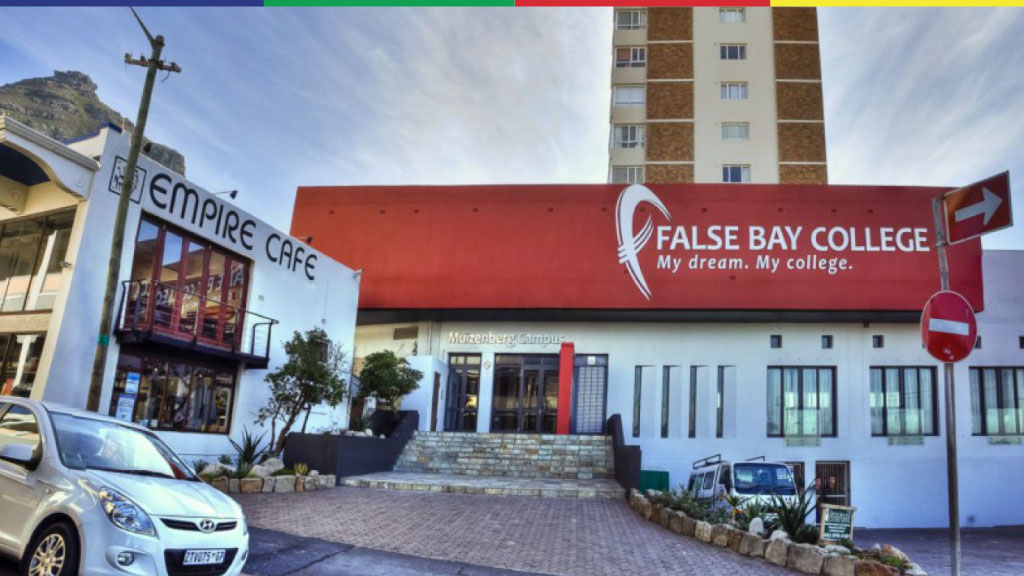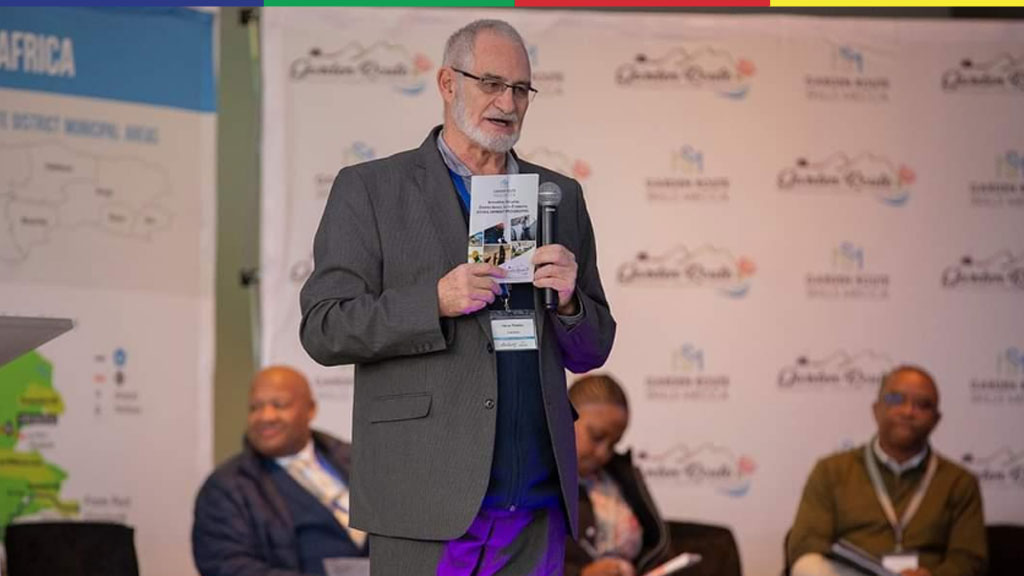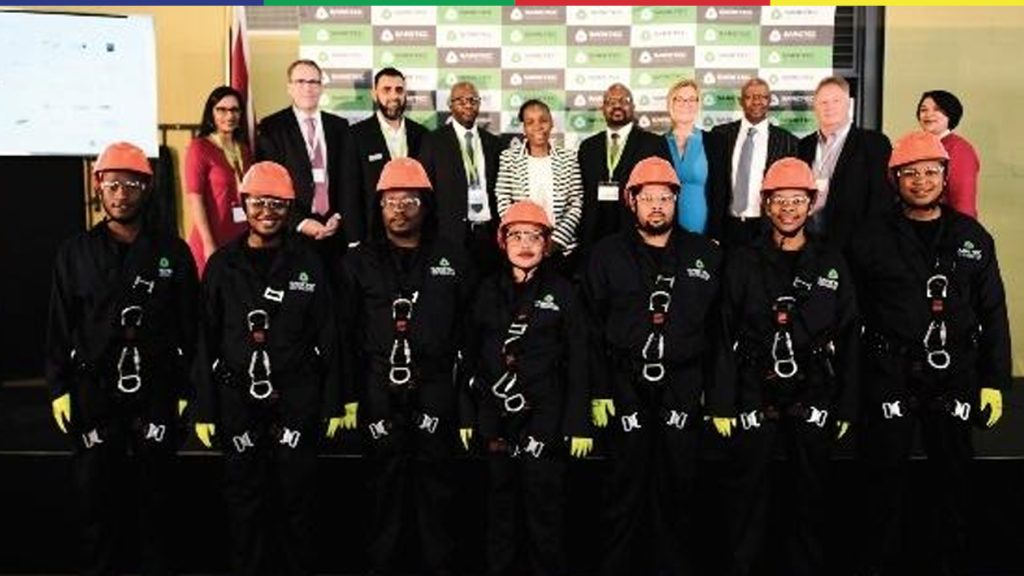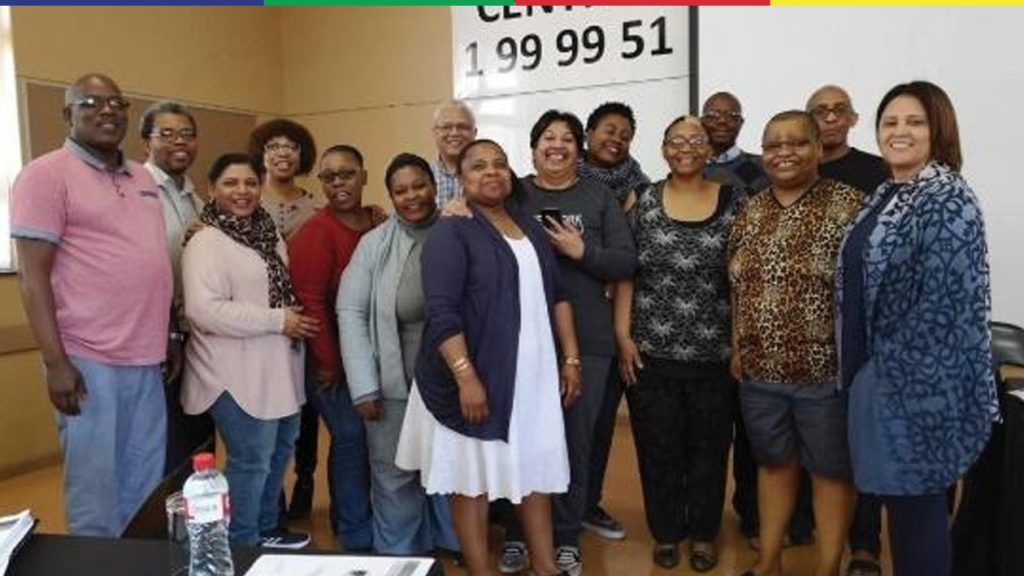The National Skills Fund (NSF) approved R180 million funding for False Bay TVET College to establish its sixth campus (Swartklip). This funding enables the college to realise its vision of creating a skills campus purely focussed on the training of artisans. When complete, the campus will boast fully equipped workshops in various artisanal trades such as masonry, plumbing, painting, plastering, tiling, carpentry, welding, electrics, motor mechanics and rigging.
The Swartklip campus was established to create a skills campus consisting of a cluster of centres of excellence with the aim to reduce poverty, inequality and unemployment through training excellence that will promote accelerated and sustained economic growth.
The rigging workshop, to be used as an artisanal Centre of Specialisation for rigging, constituted the first phase of the project and was almost near completion by the end of the review year. The second phase will entail the refurbishment of additional workshops for boilermaking, electrics and motor mechanics, the erection of a perimeter fence and entrance gate, as well as a road and external works.
Sithokozile Nelani and Uzair Jardine are in the college’s first intake of rigging apprentices in the 2019 academic year.
Nelani, a 30-year-old black woman from the Eastern Cape, studied Electrical Engineering (Heavy Current) from N1 to N6 National Accredited Technical Education Diploma (Nated) at Ekurhuleni East TVET College in Daveyton.
“Rigging is quite a male-dominated industry. It is my interest to prove and show other females that it is possible to make in this industry irrespective of one’s gender”, Nelani said.
Before joining the rigging apprenticeship programme, she passed her Trade Test Certificate in Electrical Engineering and was in her third year of distance learning at Lyceum College, working towards a Bachelor of Arts degree in Disaster and Safety Management. She has also worked for the South African Navy as an engine room attendant aboard the SAS Makhanda. She then qualified as an auxiliary watcher on boats, ensuring the safety, maintenance and the protection of maritime resources.
“One the things that lured my interest in rigging is that it involves all the trades in engineering fields. There are no company operations without riggers”, she explained. “For example, in construction and building sites a rigger is needed for moving extremely large and heavy loads safely, working with cranes”.
Since the start of this programme, she has gained understanding, learnt more about rigging and is getting clarification on things she queried, such as splicing, grommets, lifting and turning load. The importance of safety and precautions, the need for a rigger to be vigilant, confident and reliable, and the importance of leadership skills and professionalism are some of her lessons on the programme. Importantly, being knowledgeable about the equipment involved is a notable highlight: how these work, what they are capable of and how she should operate and maintain them.
“Being part of the rigging programme has boosted my confidence. I discovered that I am very much capable and effective working with others. I would like to appreciate the funders of the programme – the NSF – for their investments in these apprenticeships. Their support does not go unnoticed and the result will be overwhelming. The NSF must continue reaching out to the people and bring light”.
Nelani attests to the famous quote by the late Nelson Mandela: “Education is the most powerful weapon which you can use to change the world”. “In a massive way education helps us find purpose and improve our lives”, she said.
Jardine, on the other hand, is a coloured male from Morgens Village, located between Westgate and Westridge in Mitchell’s Plain.
“I always had an interest for physical work and work that requires lots of thinking. Also, I often wondered how heavy objects and massive objects get erected in certain places which manpower alone would certainly not be able to do”, he said.
Once he learnt more about the rigging industry and many of the tasks they perform and how important these are, he thought to himself, “This is perfect for me”.
“I have learnt so much in this programme and in such a short time too. My ultimate goal is opening my own rigging company once I have successfully passed my trade test in three years. In that way, I will get to lead a company into success and create more job opportunities for more people”.
“Without this programme, I would most probably have still been studying religious studies at the mosque opposite Mondale High School in Portlands, Mitchell’s Plain, and possibly doing odd jobs on weekends for some money or looking for a part-time job”.
Not only is this programme giving him knowledge that he can use for the future, it is also showing him a whole new possibility of employment or entrepreneurship. “This programme has truly changed my life for the better. It has given me something I can never lose and for that I am extremely grateful”.
“Knowledge and having the skills to implement that knowledge is something no one is born with. Therefore, such programmes are made available to empower young minds to make their future bright. And with funders such as NSF making it possible for such opportunities to be available, learning and putting knowledge into action has never been easier”.
Jardine is grateful for the opportunity made possible by the NSF and False Bay TVET College.
This article was published in the NSF 2018/19 Annual Report




